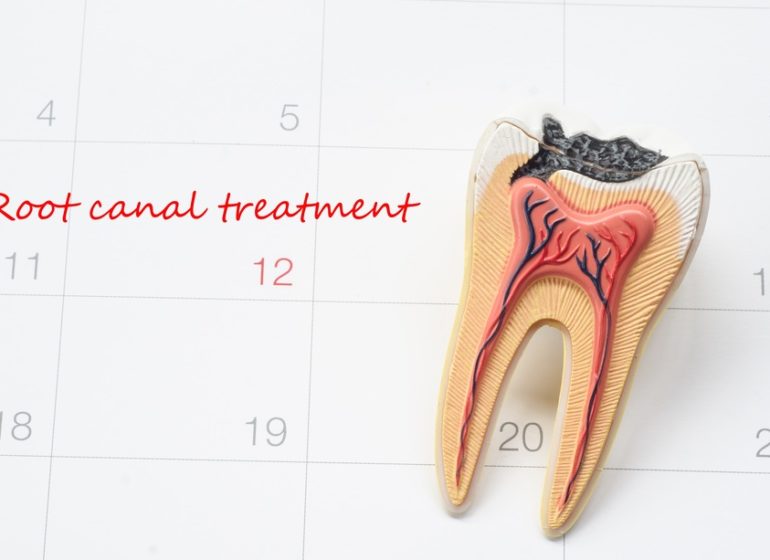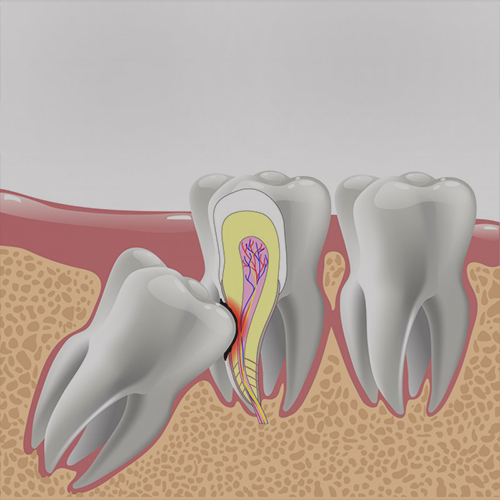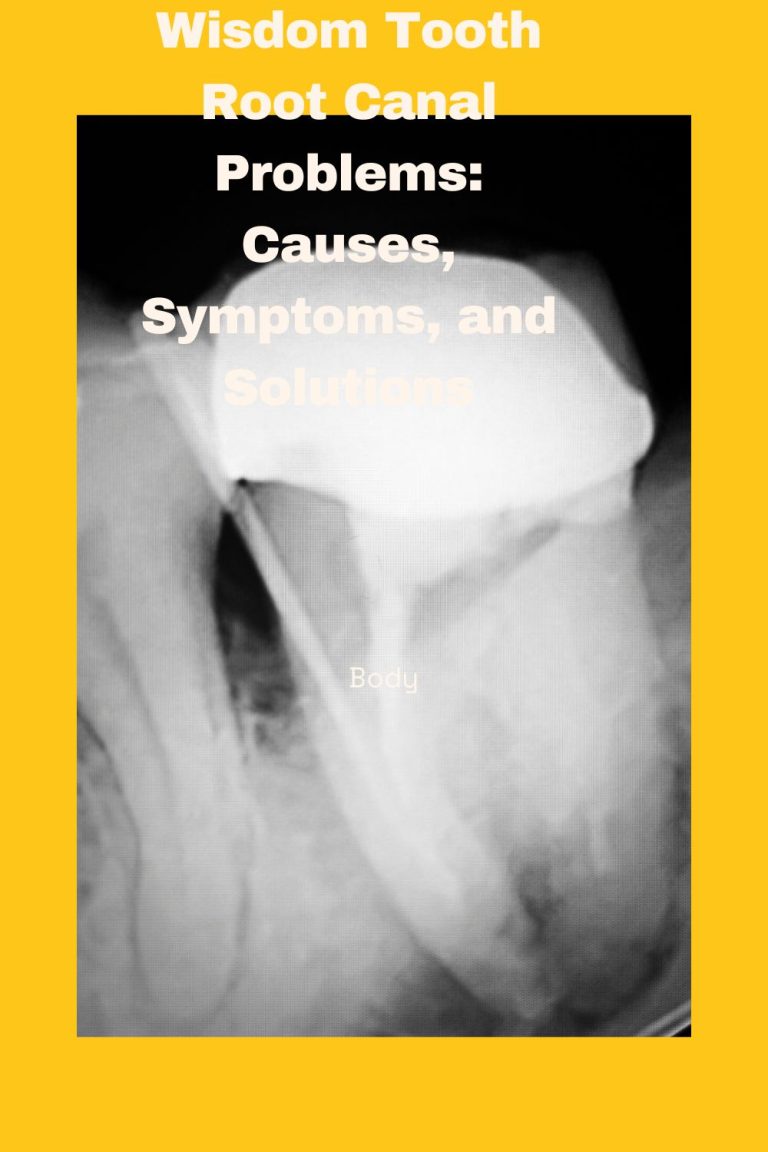Root Canal Wisdom Tooth Pain: Effective Relief and Treatment Options
Last Updated on 5 months by DR. ALBIN SIPES
Root canal treatment on a wisdom tooth can be painful. The pain usually subsides with proper care and medication.
Root canal treatment becomes necessary when the tooth’s pulp becomes infected or inflamed. This situation can cause immense pain and swelling. Wisdom teeth, located at the back of your mouth, are particularly challenging. Their position makes them harder to clean and more prone to decay.
Regular dental check-ups can help detect issues early. Immediate attention to dental pain is crucial. Delays can lead to more severe problems and extended treatments. Proper oral hygiene, including brushing and flossing, can prevent many dental issues. Always consult a dentist for persistent pain or discomfort.

Causes
Tooth decay is a common trigger for wisdom tooth pain. Bacteria can cause infections. Gum disease can also lead to pain. Impacted wisdom teeth are another cause. They do not have enough space to grow. This can hurt a lot. Crowded teeth can add to the problem. Food particles can get stuck. This can cause more pain and infection.
Cavities in wisdom teeth are common. They can cause severe pain. Periodontal disease affects the gums around wisdom teeth. This can make them sore. Cysts can form around impacted wisdom teeth. These can be very painful. Nerve damage is another issue. It can cause sharp, shooting pains. Jawbone problems can arise. This can make it hard to open your mouth.

Symptoms
Intense toothache, swelling, and sensitivity to hot or cold foods often indicate root canal wisdom tooth pain. Persistent discomfort may suggest an underlying infection needing immediate dental attention.
Identifying Pain Types
Root canal pain often feels sharp and intense. Wisdom tooth pain is usually duller and throbbing. Both can cause jaw discomfort. Swelling and tenderness are common with wisdom teeth. Root canal issues may also lead to sensitivity to hot or cold.
When To Seek Help
Seek help if pain lasts more than a day. Visit the dentist if swelling or fever occurs. Extreme sensitivity to temperature also needs attention. Difficulty opening your mouth can be a sign of infection.
Home Remedies
Natural remedies can help soothe root canal wisdom tooth pain. Clove oil, saltwater rinses, and ice packs provide effective relief.
Immediate Relief Techniques
Rinse your mouth with warm salt water. This can help reduce swelling. Apply ice packs to the affected area. This can numb the pain. Over-the-counter painkillers like ibuprofen can provide temporary relief. Use a clove oil soaked cotton ball. Place it on the painful area. This can help numb the pain.
Natural Pain Relievers
Chew garlic cloves. Garlic has natural anti-inflammatory properties. Use turmeric paste on the sore area. Turmeric can reduce pain and swelling. Peppermint tea bags can be used. Cool them in the fridge and then apply. Peppermint can numb the pain. Hydrogen peroxide rinse can also help. Mix it with water and rinse your mouth. This can reduce bacteria and pain.
Medical Treatments
Pain from a root canal or wisdom tooth can be intense. Ibuprofen and acetaminophen are common choices. They help in reducing pain and swelling. Always follow the dosage instructions on the package. These medicines are easy to find at local pharmacies. They provide temporary relief but may not solve the problem.
Sometimes, stronger medications are needed. A dentist might prescribe narcotic pain relievers. These are for severe pain. Antibiotics may also be prescribed to fight infection. Always take prescriptions exactly as directed. They can have side effects, so be careful. Consult your doctor if you have any concerns.
Professional Dental Treatments
A root canal helps save a tooth from decay. A dentist removes the infected pulp inside the tooth. The tooth is then cleaned and sealed. This prevents future infections. The process can take one or two visits. Anesthesia is used to keep you comfortable. After the procedure, the tooth may feel sensitive. Painkillers can help ease the pain. The tooth will need a crown to protect it.
Wisdom teeth often cause pain and crowding. Extraction is a common solution. The dentist numbs the area with anesthesia. The wisdom tooth is then removed. This can help prevent future dental problems. The extraction site is stitched to help it heal. Swelling and discomfort are normal after the procedure. Ice packs and painkillers can help. Follow your dentist’s advice for a smooth recovery.
Post-treatment Care
Use over-the-counter pain relievers to manage pain after a root canal. Ice packs can reduce swelling and numb the pain. Avoid hard foods and stick to soft foods. Rest is very important for healing. Follow your dentist’s advice carefully for the best results.
Keep your mouth clean to prevent infections. Brush your teeth twice daily with a soft-bristled toothbrush. Use a mouthwash recommended by your dentist. Avoid smoking as it can delay healing. Visit your dentist for follow-up appointments. Report any signs of infection like swelling or fever immediately.
Preventive Measures
Regular dental check-ups help keep your teeth healthy. Dentists can spot problems early. Early detection means easier treatment. Check-ups should happen every six months. This keeps your mouth in top shape. Cleanings remove plaque and tartar. These can cause pain if not removed. A healthy mouth means a happy smile.
Brush your teeth twice a day. Use fluoride toothpaste. Fluoride makes teeth strong. Floss daily to remove food bits. Food bits can cause cavities. Rinse with mouthwash for extra cleaning. Mouthwash kills germs. Avoid too many sugary snacks. Sugar can harm your teeth. Drink lots of water. Water helps wash away food particles.

Conclusion
Understanding root canal wisdom tooth pain is essential for effective treatment and relief. Address issues early to prevent complications. Consult a dentist for personalized care. Proper oral hygiene and regular check-ups are vital. Don’t let wisdom tooth pain disrupt your life; seek professional advice promptly.
Stay proactive in maintaining dental health.



